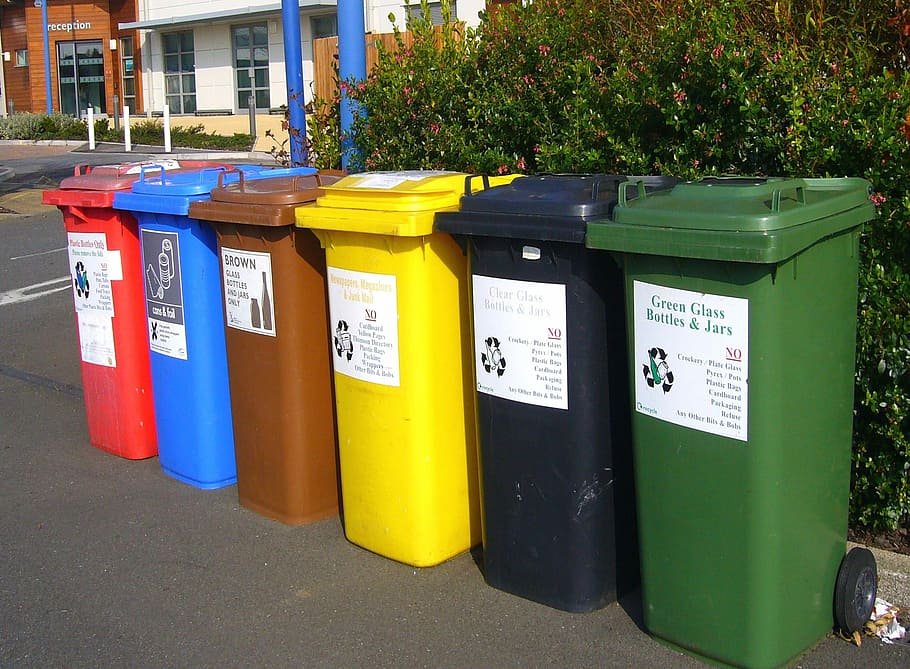
We all know we should recycle our waste routinely but come on let’s get real, as it can get complicated in a hurry and with lack of knowledge. With the blue bins and the grey carts and the never-ending lists of what to do and not to do, it’s easy to get confused with what to sort and dispose in which bin and by which way. But the thing is, that adopting smart recycling habits for yourself is more than just keeping your house and community clean, but It’s about what’s is betterment of your health, for you, your loved ones, and for the entire community and planet where we all live, which is the one and only place we known where human race is in existence. And we have no option to prevent it will we find another home for humanity which is not so easy, and till them we have to take care of our home and take necessary actions to keep our home planet safe and livable for our future generations.

Let’s begin with the basics. The majority of US communities, whether you’re in Beverly, Massachusetts, Mecklenburg County, North Carolina, or Hillsborough County, Florida, will take your clean and empty containers to recycle plastic bottles, glass jars, aluminum cans, and cardboard. Food residue is an absolute no because it can attract rodents and contaminate entire collections of recyclables, and this can be composted or disposed with other safe methods and reduce the methane a harmful greenhouse gases production. So, put those peanut butter jars and soda cans in the sink for a quick rinse before adding them to the trash bin. And don’t even think about putting your recyclables in plastic bags, put them always in loose, as plastic bags can clog up sorting machines and hinders the sorting process.

Now, let’s talk about the things that under no circumstances should ever get into your recycling bin. Plastic bags are the obstacles of the recycling process; therefore, plastic bags usage should be avoided. They tangle up in sorting machines and can shut down entire facilities. If you’ve got a bunch of grocery bags, take them back to the store many supermarkets have special bins just for disposing off the plastic and grocery bags. Other troublemakers include wet pizza boxes and cartoons, diapers, used garden hoses, and anything with food or liquid still inside. And don’t practice to club old lamp or busted toaster of any electronic equipment mixes with other garbage, as electronics and small appliances require special disposal process. Most local programs offer designated waste drop-off sites or special collection days for these items.

Talking about special items, hazardous waste such as batteries, paint, and motor oil should be avoided from regular trash. As these chemical-based substances can include poisonous chemicals, which threats exposing of this chemical to sanitation workers and with contacting in environment it may create a major health threat. Instead, find out household hazardous waste disposal agency or such hazardous waste drop-off facilities in your neighborhood. Clothing and shoes fall into the fabric category and are not appropriate for your regular waste container, but many communities encourage to donate the good condition and less used items or drop off recycling facilities for such shoes and fabrics.

One thing that catches even the cleverest recycler unnoticed is that the regulations for waste disposal of in different locations and countries. What Beverly accepts may not be okay in Hillsborough County, and Mecklenburg County has its own set of rules, too. Some locations will take milk and juice cartons separately, while others treat them as common trash. That’s why it’s always a good to find out and learn all the local regulations for waste disposal, which are typically posted on your city or county website or community office before you send your garbage for disposal to the landfill.

Why does this matter? Correct recycling isn’t just about conserving landfill space (although that’s a major benefit). It’s also about preventing pollution, saving energy, and keeping toxic materials out of our water, land and air contact. When recyclables are sorted in the right way, they can be processed into a new useful product, reducing the need for its natural raw materials and minerals, and the pollution involved in their extraction of them. And by keeping hazardous items such as chemicals and batteries out of the normal waste collection, you will help to protect the health of your community and also of the people who work with your trash and dispose it off.

To make it easier to recycle, experiment with creating a simple recycling area in your home. Have a small container for different recyclables in the kitchen, and another for special disposal items, such as batteries or electronics. Collapse cardboard boxes to reduce the trash area space and watch for neighborhood recycling schedules some towns even have free drop-off days for Styrofoam or other hazardous waste know and follow it. And if you ever wonder if something is recyclable, it’s safer to double-check it before sending it to trash (that’s where many people mistake’s and cross their fingers by throw anything without knowledge in the trash bin, hoping it magically works out).

Recycling may not be appealing and seems difficult task initially, but it’s one of the easiest ways with knowledge and with positive and planned actions, to make a major impact on your health and surrounding environment. With minimal effort and some knowledge, you can transform your house and Neighborhood into a better recycling place and even encourage your neighbors and community to follow these good habits and make your area cleaner and hygienic and enjoy better health for all.
